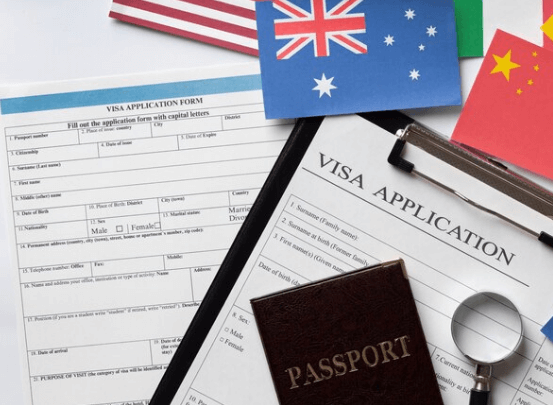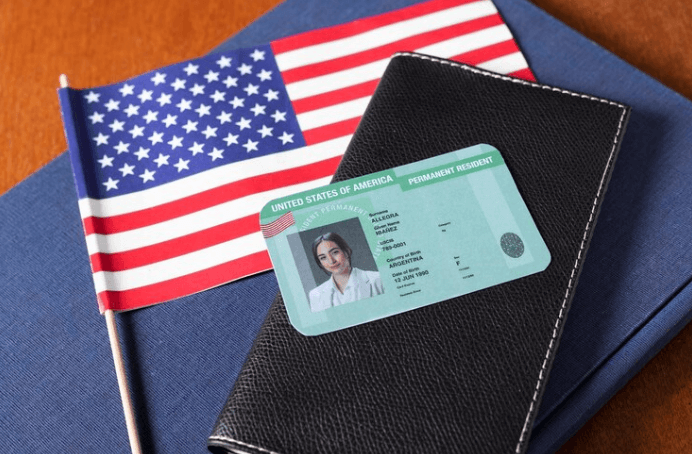In an increasingly globalized world, the concept of working abroad has transformed from a distant dream into a tangible reality for many. With businesses expanding their reach across borders and the digital age erasing geographical limitations, the allure of international work experiences is stronger than ever.
At the heart of turning this aspiration into actuality are work visas, the essential keys to unlocking global career opportunities.
Understanding Work Visas
A work visa is a government-issued document that legally allows a non-citizen to be employed in the country issuing the visa. These visas vary greatly from country to country, each with its own set of rules, types, and requirements. Understanding the nuances of different work visas is crucial for anyone considering a career abroad.
Types of Work Visas
- General Work Visas: These are the most common type, often issued for a specific duration and tied to a particular employer or job.
- Skilled Worker Visas: Targeting individuals with special skills, qualifications, or experience, these visas are highly sought after. Countries like Canada and Australia offer points-based systems to attract such talents.
- Temporary Work Visas: Ideal for short-term assignments, these are often used for seasonal work or specific projects.
- Business Visas: These are for individuals who intend to engage in business activities but not be employed in a traditional sense in the host country.
- Intra-company Transfer Visas: Issued to employees who are being transferred by their current employer to an office in a different country.
The Importance of Work Visas
Work visas serve several crucial purposes:
- Legal Compliance: They ensure that your employment in a foreign country is legal, protecting you from potential legal issues.
- Access to Global Opportunities: Work visas open doors to international experience, allowing professionals to expand their horizons and work in diverse environments.
- Cultural Exchange: Working abroad promotes cultural understanding and global networking, invaluable in today’s interconnected world.
Applying for a Work Visa
The application process for a work visa can be daunting, but with the right approach, it’s manageable. Here are some general steps:
- Job Offer: Typically, you need a job offer from an employer in the host country.
- Documentation: Gather all necessary documents, which may include a passport, proof of qualifications, and a clean criminal record.
- Application Form: Complete the visa application form, which can usually be found on the website of the host country’s embassy or immigration department.
- Visa Fees: Be prepared to pay any applicable visa fees, which can vary depending on the visa type and country.
- Interview: Some countries require a visa interview as part of the application process.
- Wait Time: After submission, there is usually a waiting period for the visa processing.
Navigating Challenges and Requirements
The journey to securing a work visa comes with its share of challenges. Each country has its own set of requirements and procedures, which can sometimes be complex and time-consuming. For instance, some countries require a labor market test to prove that no domestic workers are available for the job, while others might have strict quotas on work visas issued each year.
Moreover, the language barrier and cultural differences can also pose challenges, especially in understanding and complying with legal requirements. It’s essential to research thoroughly and, if possible, seek advice from legal experts or those who have successfully obtained a work visa in your destination country.
The Role of Employers
Employers play a pivotal role in the work visa process. In many cases, they are responsible for sponsoring the visa and providing necessary documentation, such as a letter of employment. Some employers might also assist with the visa application process or provide resources and support for relocation.
It’s important to communicate clearly with your potential employer about visa requirements and ensure they are willing and able to sponsor your visa. Understanding the level of support your employer offers can significantly impact your experience and success in securing a work visa.
Keeping Up with Policy Changes
Immigration policies are constantly evolving, and what may be true today could change tomorrow. Staying informed about the latest immigration laws and visa policies of your intended destination is crucial. Governments often update policies in response to political, economic, and social factors, impacting visa availability, eligibility criteria, and application processes.
Regularly checking official immigration websites and consulting with immigration professionals can help you stay up-to-date and navigate any changes effectively.
The Benefits of Working Abroad
Working abroad offers a plethora of benefits:
- Professional Growth: Exposure to different business practices, work cultures, and market conditions enhances your professional skills and experience.
- Personal Development: Living in a new country fosters independence, adaptability, and a broader world view.
- Networking: You’ll build a global network of professional contacts, which can open doors to future opportunities.
- Cultural Experience: Immersing yourself in a new culture enriches your personal life and enhances your understanding of the world.
- Financial Benefits: In some cases, working abroad can offer financial advantages, such as higher salaries or lower costs of living.
Preparing for Life Abroad
Once your work visa is secured, the journey is just beginning. Adapting to life in a new country can be both exciting and challenging. Here are some tips to ease the transition:
- Cultural Research: Before moving, research the local customs, etiquette, and social norms of your new home. This knowledge can help you avoid cultural faux pas and integrate more smoothly into the community.
- Language Skills: If moving to a country with a different language, learning the basics or even achieving proficiency can greatly enhance your daily life and work experience.
- Financial Planning: Understand the cost of living in your new country. Budget for initial expenses such as housing, transportation, and healthcare, keeping in mind that it might take some time to adjust to the new economic environment.
- Social Connections: Building a social network can be crucial for emotional support. Look for expat communities, professional networks, or local clubs that align with your interests.
- Healthcare: Familiarize yourself with the healthcare system of the host country. Some countries might require you to have health insurance, so make sure you’re adequately covered.
- Legal Matters: Keep abreast of the legal obligations related to your visa, such as renewal deadlines, restrictions on travel, or changes in employment status.
Long-Term Considerations
For those considering a long-term or permanent move, there are additional factors to consider:
- Permanent Residency and Citizenship: Some work visas can lead to permanent residency or citizenship. Understanding these pathways and their requirements is crucial if you plan to stay long-term.
- Family and Relationships: Consider the impact on your family, especially if they are moving with you. This includes schooling for children, employment opportunities for partners, and the general well-being of your family in a new environment.
- Career Trajectory: Reflect on how working abroad will impact your long-term career goals. For some, it might be a stepping stone to further opportunities; for others, it might be a chance to settle into a new career path.
Success Stories and Lessons Learned
Many have tread the path of working abroad and have valuable experiences to share. From success stories to lessons learned, there is a wealth of knowledge to be gleaned from others’ journeys. These narratives can provide insights, inspiration, and practical advice for navigating the complexities of working in a foreign country.
Embracing the Adventure: Personal Growth and Flexibility
The decision to work abroad is not just a professional choice; it’s a leap into a world of personal growth and adventure. Adapting to a new environment, overcoming language barriers, and navigating cultural differences enrich your life experience in profound ways. It teaches resilience, flexibility, and open-mindedness—qualities invaluable in both personal and professional spheres.
Technology and Remote Working: A New Era of Global Opportunities
In the digital age, the concept of working abroad has expanded beyond physical relocation. Remote working and digital nomad lifestyles are becoming increasingly popular, offering a blend of travel and work without the need for traditional work visas. This trend is opening up new possibilities for experiencing different cultures while maintaining a global career.
The Impact of Global Experience on Career Prospects
Global work experience is highly valued in today’s job market. It demonstrates adaptability, cultural sensitivity, and an ability to navigate complex environments—traits that are highly sought after by employers. The skills and perspectives gained from working abroad can set you apart in your career, providing a competitive edge in job markets both at home and internationally.
Conclusion
Work visas are more than just bureaucratic necessities; they are passports to a world of opportunities. They open doors to diverse cultures, professional growth, personal development, and a network of global connections. The process of obtaining a work visa and adapting to life abroad might seem daunting, but the rewards are immeasurable.
As the world becomes increasingly interconnected, the value of international work experience continues to grow. Whether it’s for a few months, several years, or a lifetime, working abroad is an adventure that can profoundly shape your career and your life. Embrace the challenge, prepare thoroughly, and you’ll find that work visas truly are your gateway to global opportunities.







Leave a Reply